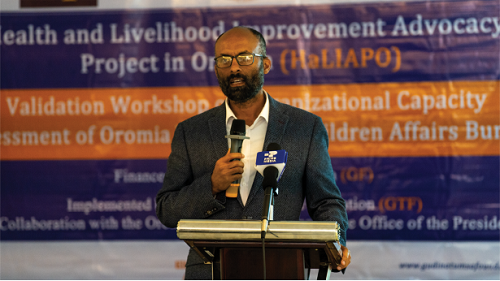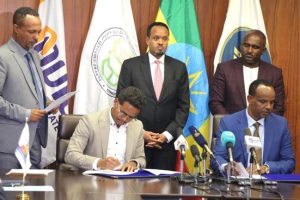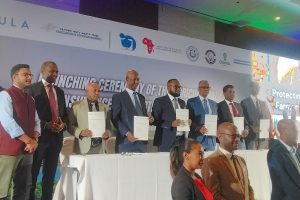
ADDIS ABABA – The Gudina Tumsa Foundation (GTF) has emphasized the urgent need for institutional capacity building among service providers to empower women and ensure their economic independence.
The Foundation held a validation workshop yesterday on the organizational capacity assessment of the Oromia State Women and Children Affairs Bureau. The workshop aimed to promote women’s economic empowerment, encourage collaboration, and facilitate the formation of a joint task force.
In his opening remarks, GTF’s Program Director Iyobed Yonas highlighted that strengthening service-oriented institutional capacity building initiatives is essential to economically empower women.
He explained that the Foundation is focused on enhancing the capacity of institutions to effectively implement policies for women’s economic empowerment. The assessment examined the capacity, human resources, and financial resources of the Oromia Women and Children Affairs Bureau, with a focus on improving health, agriculture, financial inclusion, and women’s economic empowerment.
The Foundation has conducted various studies and provided policy recommendations to assist government bodies in implementing effective policies. This latest study aims to identify strengths and weaknesses in the execution of policies, strategies, and laws designed to support women. It further supports efforts to empower women in the workforce, he stated.
Based on the identified gaps, solutions have been proposed, and a joint plan will be developed and implemented in collaboration with stakeholders to address these challenges, Iyobed noted.
He also pointed out that GTF is committed to strengthening service organizations and promoting women’s inclusion in their operations.
Additionally, Iyobed highlighted that the Foundation is fostering collective action to build a holistic understanding of organizational capacities related to women’s economic empowerment, including aspects of human rights and culture.
Oromia State Chief’s Advisor on Women’s Economic Empowerment Gelane Gure stressed the urgent need for policy reforms and multi-sectoral collaboration to close existing gaps and create a more inclusive economic landscape for women.
She emphasized the importance of enhancing the capacity of government bodies focusing on women to fulfill their legal responsibilities, identify weaknesses in policy implementation, and propose solutions based on those findings.
BY ESSEYE MENGISTE
THE ETHIOPIAN HERALD SATURDAY 14 JUNE 2025




